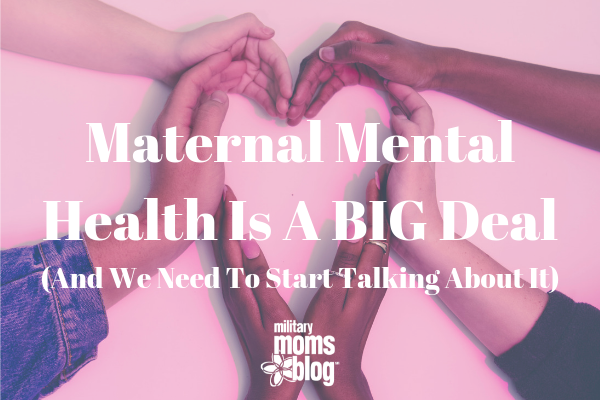
Maternal Mental Health
According to the World Health Organization, “Worldwide about 10% of pregnant women and 13% of women who have just given birth experience a mental disorder, primarily depression. In developing countries this is even higher, i.e. 15.6% during pregnancy and 19.8% after child birth. In severe cases mothers’ suffering might be so severe that they may even commit suicide. In addition, the affected mothers cannot function properly. As a result, the children’s growth and development may be negatively affected as well. Maternal mental disorders are treatable. Effective interventions can be delivered even by well-trained non-specialist health providers.
We lost a mom in our community recently.
She lived a little over a half mile from our house. I didn’t know her well. After she died, people talked about the genuine smile that was always on her face and how friendly she was. Other moms told stories about her from the week before, the day before, and even the morning she died.
It is a tragedy for a community to lose a mom. Don’t get me wrong, it’s a tragedy to lose anyone, but in my experience, it tends to be the moms who keep things going for the family … in the house, in the school, in the town. They carry the weight of the family from finances to household chores to tiny details like what day is silly sock day at school and where a certain toy was last seen.
This weight comes in stress, happiness, loneliness, excitement, anxiety, and more. Moms internalize what is happening with their significant other at work and their children at school and with peers. It doesn’t matter if the mom stays at home or works full time, moms take on a lot, physically, emotionally, and mentally.
On that Friday evening in April, this mom chose to take her own life.
Not only that, she chose to take the life of her 4-year-old son as well.
Do you want to know the most excruciating part of it?
No one had any idea that she was suffering.
Those moms who told stories about this mom? They talked about how happy she was; how she threw the most wonderful birthday party for her son the week before; how she was talking about her plans for the summer the day before; how she was playing at the park that very morning.
I have spent the weeks following their deaths wondering how and why this happened. Honestly, it is hard to even look at my own 3-year-old, who was in a class with this little boy, and wonder how a mom could do that to her own child. But it comes back to one thing:
She was hurting. Terribly. And no one knew.
Maternal mental health is a big deal, and we need to start talking about it.
I’m not talking about a health care provider doing a screening at a postpartum or well child-check, although that is a vital part of this as well. I’m talking about moms talking to other moms in real life.
Did you know that women are almost twice as likely as men to suffer from depression? One in five women will experience depression in her lifetime and “women have the greatest risk for developing depressive disorders during their child-bearing years.” While men tend to be more successful in completing suicide, women are almost three times more likely to attempt suicide.
So why aren’t we talking about maternal mental health? One in five women! Look at your child’s peers. Now look at their moms. Based on statistics, someone is suffering. It may not be you, and it may not be me. But it is still one of us.
We live in this world where a lot of our “interactions” with other people are through social media, and those interactions are highly filtered. There are some people on there who post the good, the bad, and the ugly, but most people share the highlights of their lives. While that is great, it creates a false picture of what is really happening.
What if we started getting real?
What if things like depression and anxiety were a normal part of the conversation and not a taboo subject? Those moms who told the story of the mom who died? They didn’t know to ask, and she wasn’t comfortable enough to know to tell them.
From one mom to another, let’s change that. Let’s start the conversation.
Are you looking for help now?
Tricare Mental Health Information
National Network of Depression Centers
Mental Health America Affiliate Resource Center
National Suicide Prevention Lifeline – 1-800-273-8255
(If you are in an immediate crisis, go to your local emergency room)











